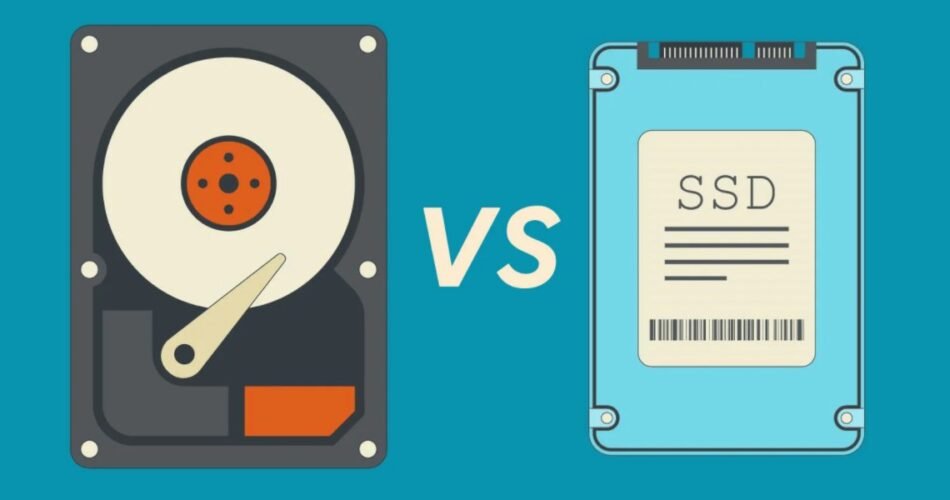What Is an HDD?
An HDD is a data storage device that lives inside the computer. It has spinning disks inside where data is stored magnetically. The HDD has an arm with several “heads” (transducers) that read and write data on the disk. It is similar to how a turntable record player works, with an LP record (hard disk) and a needle on an arm (transducers). The arm moves the heads across the surface of the disk to access different data.

HDDs are considered a legacy technology, meaning they’ve been around longer than SSDs. In general, they are lower in cost and are practical for data that does not need to be accessed frequently, such as backups of photos, videos or business files. They are available in two common form factors: 2.5 inch (commonly used in laptops) and 3.5 inch (desktop computers).
What Is an SSD?
SSDs got their name—solid state—because they use solidstate devices under the hood. In an SSD, all data is stored in integrated circuits. This difference from HDDs has a lot of implications, especially in size and performance. Without the need for a spinning disk, SSDs can reduce to the shape and size of a stick of gum (what’s known as the M.2 form factor) or even as small as a postage stamp.

Their capacity—or how much data they can hold—varies, making them flexible for smaller devices, such as slim laptops, convertibles, or 2 in 1s. And SSDs dramatically reduce access time since users don’t have to wait for platter rotation to start up.
SSDs are more expensive than HDDs per amount of storage (in gigabytes (GB) and terabytes (TB)), but the gap is closing as SSD prices decline at a faster pace that HDD prices year over year.
SSD vs. HDD: Speed
What makes SSDs an increasingly popular choice is their speed. Across the board, SSDs outpace HDDs because they use electrical circuitry and have no physical moving parts. This leads to shorter wait times when you’re starting up and fewer delays when opening apps or doing heavy computing tasks. For example, the Intel SSD D5-P5316 is a 15.36TB enterprise-grade SSD that offers over 7000 MB/s in bandwidth. The 14TB Seagate Exos 2×14, a compatible HDD, offers only up to 500 MB/s in bandwidth. That’s a difference of 14x!1
These faster speeds lead to performance benefits in several areas, such as when logging in and waiting for apps and services to start up, or when performing storage-intensive tasks such as copying a large file. With an HDD, performance slows significantly, while an SSD can continue to work on other tasks.
Speed is also influenced by the interface used in an SSD vs. HDD that connects to the rest of the computer system when transferring data back and forth. You might have heard of these interfaces—SATA and PCI Express (PCIe). SATA is an older, slower, legacy technology, while PCIe is newer and faster. SSDs with PCIe interfaces will typically be much faster than HDDs with SATA because PCIe contains more channels to transfer data. Think of it like the number of cars that can go down a one-lane country road compared to a four lane highway.
Although no one ever complains that their computer is too fast, there are times when an HDD can make sense. If you have terabytes of files that you want to store, HDDs are still a less expensive option, although that’s changing with increasingly lower SSD prices and newer NAND technologies driving bit densities higher per NAND die.
Computer storage decisions can be simplified by thinking of data as either cold or hot. “Cold” data might include the years of photos you want to keep on your laptop but don’t look at every day and don’t need quick access to. HDDs can be an excellent, cost-effective choice for cold data. At the other end of the spectrum, if you’re a business running real-time transactions, editing videos and photos and need fast access to a database of files, video clips, or models, or even just running the operating system, that’s referred to as “hot” data. The fast performance of SSDs makes them an ideal choice for when speedy access to your data is what matters most.

